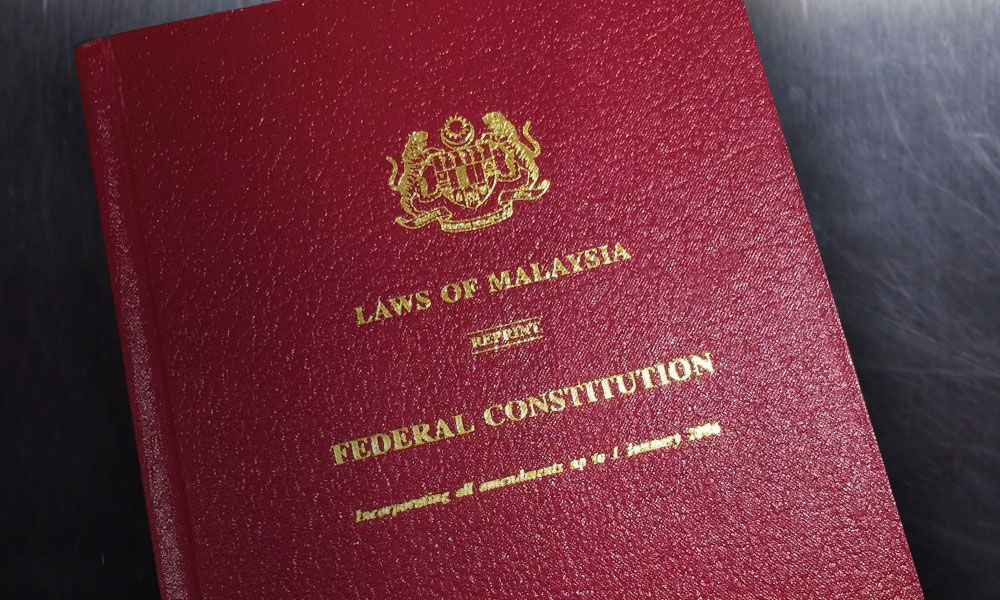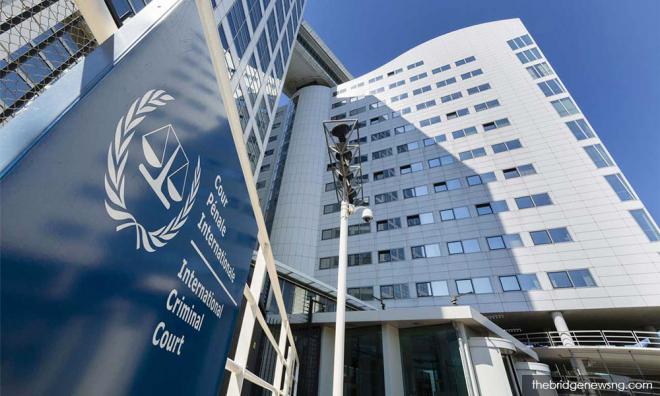
Published by The Star, image from Malaysiakini.
The current Johor controversy conceivably commences from this clause – (Art 4.(2)(a), Second Part, Johor Constitution):
“The Ruler shall first appoint as Menteri Besar to preside over the Executive Council a member of the Legislative Assembly who in his judgement is likely to command the confidence of the majority of the members of the Assembly”.
I am not a lawyer or constitutional expert, but a layman’s reading of this paragraph raises two potential red flags, surrounding the phrases “in his judgement” and “is likely to”.
What do these phrases mean?
For most of our history, the selection process of a head of government (prime minister or menteri besar) has been relatively uncomplicated. The legislative assembly chooses a clear candidate, and that candidate is then sworn in by the head of state.
However, since the Perak crisis of 2009, we have seen quite a number of cases that could be called constitutional crises – most notably the Selangor crisis in 2014, the Perlis crisis in 2018, and now the Johor crisis of 2019.
The delay which preceded the swearing in of Prime Minister Dr Mahathir Mohammad in May 2018 may also very well be regarded as falling within this category.
Each of these cases saw some sort of controversy which involved elected politicians and royal heads of state.
In most cases, there was one candidate for head of government that was proposed by a majority in the legislative, while the monarch in question appeared to some to potentially prefer another candidate.
I have written before at some length about the many potential deficiencies in how constitutional articles, such as the one quoted above (which are similar for many of our constitutions) are worded – in short, because they are worded ambiguously.
The words “in his judgement” would seem to provide considerable latitude. One also wonders why the phrase “is likely to command the confidence of the majority of the members of the Assembly” is used, instead of say something like: “commands the confidence of the majority of the members of the Assembly, as verifiably demonstrated via XYZ.”
XYZ here would detail the exact and precise legal instruments by which such confidence can be verifiably demonstrated – say, by a specific legal document which must signed in public by members of the legislative assembly.
Instead of such a practice, I understand we rely on two things: case law or legal precedent, and what is conventionally termed “convention”.
The most relevant case law probably derives from the 2009 Perak case.
In writing about the Selangor crisis, legal scholar Gurdial Singh Nijar cited the Federal Court’s ruling in the Perak case:
“Once an MB loses the confidence of the majority, he and his executive committee are dissolved – without even the need for the Sultan to remove them.
“Then the Sultan, in the exercise of His royal prerogative under the Perak Constitution, is at liberty to appoint another MB to replace the then existing MB.
“But His Royal Highness must appoint someone who has the command and the confidence of the majority of the members of the Legislative Assembly.
“If there ‘is no doubt’ that the person nominated has the support of the majority, then he is appointed.”
The third paragraph is particularly relevant, as it uses the word ‘must’; but it does not seem clear whether this ruling applies or is binding to all instances in which a Menteri Besar is selected, or only in cases such as the one in Perak.
I think in this day and age, it seems dangerous to rely on conventions that do not necessarily carry legal weight.
In some cases, it would seem that it is convention for the winners of the state elections to present a list of names to the head of state, who would then select one name from the list to become Menteri Besar.
Before deciding whether this is a good practice or not, I think we must first decide whether this is a legal practice or not.
One way or another, it should be codified clearly in law.
If it is the democratic will of the people that the royal heads of state should be given that power and prerogative, then that power should be clearly and unambiguously legislated into being, following the same process through which any law is legislated into being.
The same applies if it is the democratic will of the people that the heads of state should not be given said power and prerogative.
It is reasonable to speculate that there are many Malaysians who look upon the Malay rulers as a bastion and protector of all things Malay and Muslim.
Thus, it is likely that there will be popular support for their royal highnesses to continue to play some sort of role in the governance of our nation.
The question is, of course: what role exactly should this be?
The current Deputy Yang di-Pertuan Agong, Sultan Nazrin Shah, offered his views on this matter in 2017: “The King should remain apolitical, segregating himself from the political cauldron and staying away from becoming an instrument for the benefit of any party.”
Sultan Nazrin has not seen it fit to comment on what is presently happening, but surely his views would be worth hearing.
Our constitutional monarchy is clearly modelled on the British constitutional monarchy – one of the world’s oldest and most experienced monarchies, dating back to 1688.
To the question of involvement in politics, we can look at Queen Elizabeth II, arguably the world’s most famous and highly regarded monarchs.
In January 2019, Queen Elizabeth said in a speech:
“Of course, every generation faces fresh challenges and opportunities. As we look for new answers in the modern age, I for one prefer the tried and tested recipes, like speaking well of each other and respecting different points of view; coming together to seek out the common ground; and never losing sight of the bigger picture. To me, these approaches are timeless, and I commend them to everyone.”
Untrained eyes like my own would have glazed over such inoffensive, bland comments, regarding them as innocuous and not notable at all.
The British saw it differently.
The Guardian wrote:
“The Queen has called for “common ground” and “never losing sight of the bigger picture” in a speech to mark the centenary of the Sandringham Women’s Institute (WI), which is likely to be interpreted as a veiled reference to the toxic debate around Brexit.
“It is not the first time the Queen’s words have been interpreted politically with reference to a referendum. She made a rare intervention on the political stage when she expressed hope that voters would “think very carefully about the future” before the Scottish independence referendum in 2014 while meeting a member of the public outside Crathie church near Balmoral.”
With the nation for whom she has been head of state of for 67 years in the most political disarray it has seen in recent memory, Queen Elizabeth – whatever her own personal feelings – only dared to go so far as to use words like “common ground” and “never losing sight of the bigger picture,” in engaging in an already extremely rare occurence of making public comments.
This, I believe, is the ideal of constitutional monarchy – one in which respect and high regard for the monarch stems from their absolute and uncompromising refusal to ever, under any circumstances, be involved in partisan politics.
Our recent controversy raised the question of whether members of the royal family are “ordinary citizens”.
When we think of “ordinary citizens”, we usually think of individuals who do not have access to outriders to clear traffic, individuals to whom we are not required to bow to or show obsequience, and so on.
An instructive example or comparison may be judges, who by virtue of their function and role in society, are given both certain privileges and certain restrictions with regards to their way of life.
A. Kadir Jasin, who has admittedly been at times overly harsh in his writings on the royals, did raise a fair point when he said that there were many examples of royalty who had decided to make clear their position and enter politics as private citizens – citing Tunku Abdul Rahman, Tunku Abdullah Tuanku Abdul Rahman, Tengku Azlan Sultan Abu Bakar and Tengku Razaleigh Hamzah.
I believe that doing so is acceptable, and an honest, straightforward way to delineate one’s role, function and position.
At the end of the day, whatever position we take as an individual and as a nation, the most important thing is clarity: we must know exactly what kind of constitutional monarchy we want, we must codify this desire clearly into law, and each individual must know exactly what role they are willing to clearly play.
Nathaniel Tan is Director of Media & Communications at EMIR Research, an independent think-tank focused on strategic policy recommendations based upon rigorous research.

